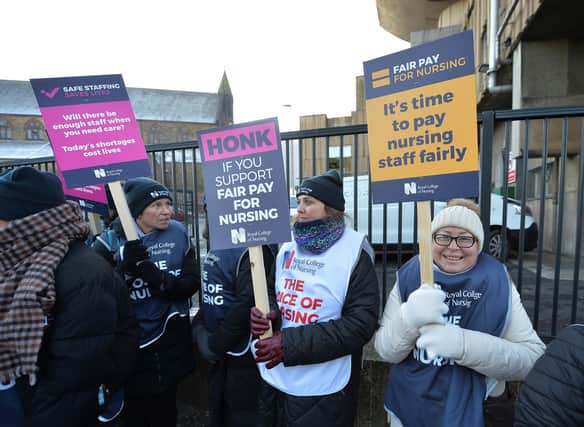Analysis: Government looks strong on strikes but that doesn't mean it's popular


It represents a strong response to the strikes that have shut down so much of Britain’s infrastructure, and ministers hope it will curtail such events happening in future.
Downing Street hopes this will show Rishi Sunak to be a tough Prime Minister, taking the sort of hardline no-nonsense approach deployed by Boris Johnson to deliver a Brexit deal.
Advertisement
Hide AdAdvertisement
Hide AdMuch like his oven ready agreement however, this seems legislation that isn’t so much going to fix the issue as intensify views on all sides.
Unions have already dismissed it as illegal and incendiary, warning it will only make strike action more intense, with walkouts more likely.
It also flies in the face of the narrative offered that ministers were always open to dialogue with workers, representing less of an olive branch and more an axe to relations with the unions.
Crucially, it also does not make the issue go away. Unhappy work forces, striking across industry, won’t suddenly quiet down and accept their lot.
If we ignore the moral arguments or issues over the cost of living, at its simplest resolving disputes with a pay agreement is the best option for everyone involved.
Failing to do so will allow opposition parties to extend the narrative that this Tory Government is not on their side, run by a billionaire who won’t let people protest for better conditions.Already the SNP have compared this to Margaret Thatcher’s handling of the strikes, while Labour have demanded “negotiation, not legislation”.
There is no easy answer, with Sir Keir Starmer repeatedly failing to take a stance, but this strong response risks alienating voters the Conservatives were already losing.
While the specific act of striking may not be popular with the public, public sector workers deserving better pay and conditions really is.
Advertisement
Hide AdAdvertisement
Hide AdMr Sunak has taken a gamble, one he hopes will curtail strikes and get Britain back on track.
But this bill will not address the historic lack of funding, and show the Government doing something, but not really addressing the direct cause of the strikes.
People want better pay and conditions, and this legislation seeks to stop them campaigning for that.
